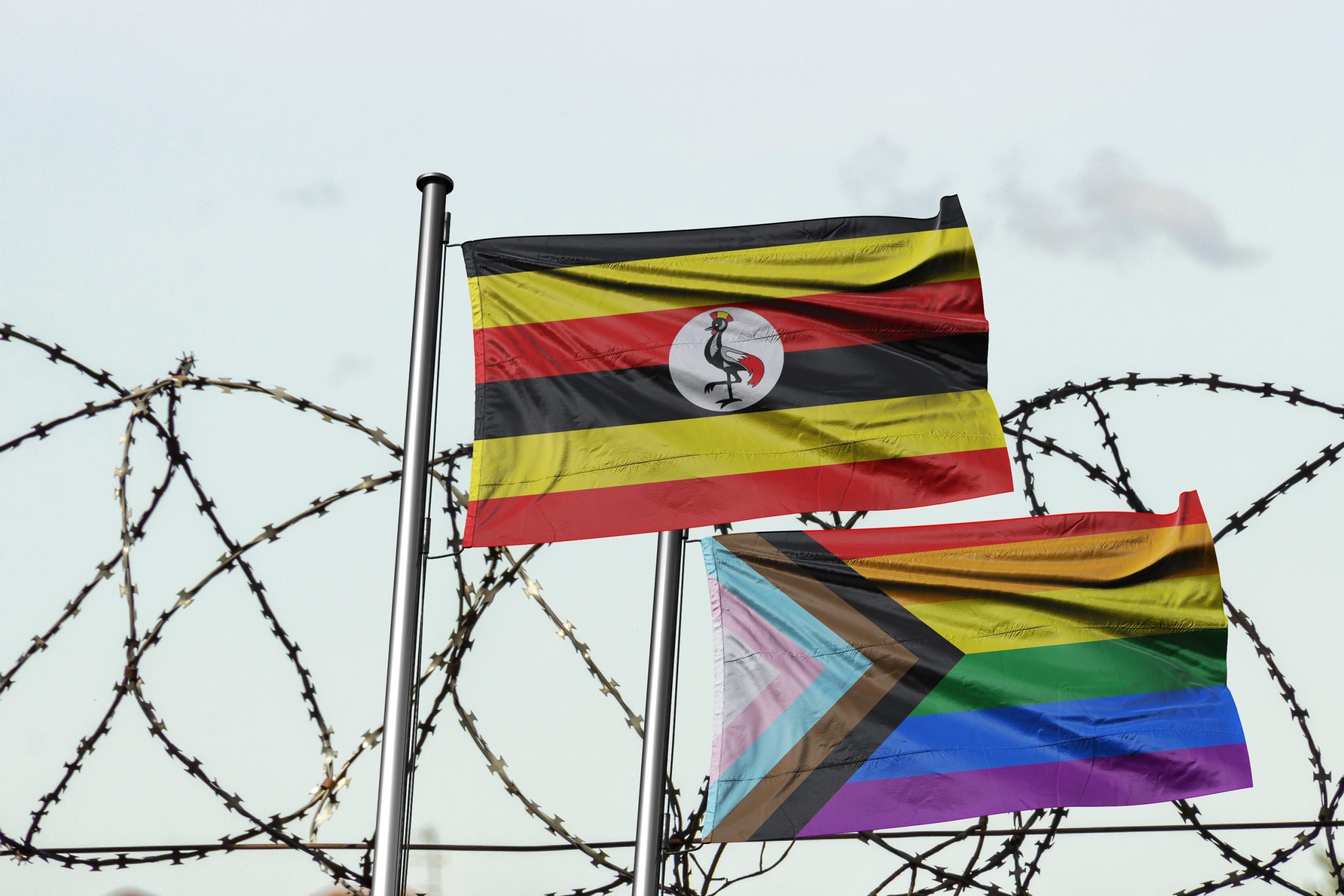
Read more
Blog, Public Attitudes
International law or national identity? How the German and Polish governments framed whether to accept Syrian and Ukrainian refugees
Over the last decade, the EU has been a destination of two of the largest refugee movements worldwide. Following the eruption of the Syrian civil war and other conflicts in the Middle East and...
In May of 2023, Uganda’s President Museveni signed into law a bill that criminalises homosexuality. Under this new Anti-Homosexuality Law, individuals who identify as LGBTQ+ could be sentenced to life in prison. In addition to threatening the safety of individuals in the country, this law is expected to likely increase the number of individuals fleeing to neighbouring countries to seek protection.
How did Uganda get here? What are the risks for the LGBTQ+ community? How can the international community provide support? This post will answer these questions on this emerging human rights issue.
The legal backdrop
The origins of the law date back to 2014 when the Ugandan Parliament passed the initial Anti-Homosexuality Act, which criminalized same-sex sexual activity and imposed harsh penalties, including life imprisonment. The law however was widely condemned by the international community, and was eventually overturned by the Ugandan Constitutional Court in 2014 on procedural grounds.
Even though it was overturned the 2014 Act has had a lasting impact on the LGBTQ+ community in Uganda. Many LGBTQ+ people have been forced to live in hiding, are subject to violence and discrimination while others have had to flee their country and become refugees. In recent years, there have been a number of reports of LGBTQ+ people being killed, attacked, and arrested.
On March 9, 2023, Asuman Basalirwa, a member of the Ugandan parliament, introduced a revised Anti-Homosexuality Bill, which is an even more egregious version of the 2014 Anti-Homosexuality Act; not only did it reinforce existing prison sentences for same-sex relationships, it also outlawed the ‘promotion of homosexuality.’ This was the bill that was adopted into law in May 2023.
There were two critical factors that contributed to the support for and adoption of these laws.
#1. Targeted campaigns
The first factor was a set of targeted campaigns. Among Uganda’s political leaders and in the media there was a concerted effort to claim that propaganda from Europeans and Americans was supposedly promoting homosexuality; there were frequent claims that funds from the west are pumped into schools to actively recruit young people into homosexuality. The language used by these groups are that young people are being ‘lured’ or ‘recruited’ into homosexuality. But as Professor Sylvia Tamale of Makerere University observed, the anti-homosexuality campaign conflated paedophilia with homosexuality. Busingye Kabumba, the Director of the Human Rights and Peace Centre (HURIPEC) at the Makerere School of Law cautioned that: ‘It is important that, in addressing a legitimate concern which is the protection of minors from sexual exploitation, Parliament does not endanger the lives of innocent Ugandans going about their ordinary lives’
#2. Easy political gains
The second contributing factor was its political instrumentalization. Attacks on the rights and lives of LGBTQ+ people has been a way to bolster support for the current political leadership: President Museveni has been in power for 37 years and targets the LGBTQ+ community to bolster his own support. It has benefited his party’s power by claiming that the opposition want to ‘promote homosexuality’ and these laws protect people from that. Yet, even if this is a cheap way of buying popularity, as the law takes effect, its bite can be lethal; more people are being taken as culprits, some facing a death penalty.
The worsening conditions for the LGBTQ+ community
Oryem Nyeko of Human Rights Watch said that ‘One of the most extreme features of this new bill is that it criminalizes people simply for being who they are as well as further infringing on the rights to privacy, and freedoms of expression and association that are already compromised in Uganda.’
LGBTQ+ Ugandans were already at risk of violence and discrimination. They face social and economic discrimination. They are often denied jobs, housing, and education, and are at risk of violence from their families and communities. Even in 2019, UNHCR reported that there were over 1,000 LGBTQ+ refugees from Uganda living in neighbouring countries, especially Kenya.
The 2023 legislation has only increased these dangers and increased the number who are seeking help and/or fleeing the country. In just the first four months of the year, a global LGBTQ+ asylum charity reported more than 468 requests for help from LGBTQ+ Ugandans, which was a ‘sharp increase from previous years’.
But if LGBTQ+ Ugandans do leave the country, they face a number of challenges. Not only can they be denied access to refugee protection, they are also discriminated against and at risk of violence as countries they flee to might have less dangerous laws on paper, but culturally remain discriminatory in practice. In the worst-case scenario, they are deported back to Uganda.
The road forward
There are a number of ways to address this human rights issue:
- Ugandan government: The first is for the Ugandan government to overturn its discriminatory law. As Nyeko called for, ‘Ugandan politicians should focus on passing laws that protect vulnerable minorities and affirm fundamental rights and stop targeting LGBT people for political capital.’ In her refute of the law, Professor Tamale advocated that ‘sex between two consenting adults should not be regulated’.
- UNHCR: UNHCR could provide more support to LGBTQ+ refugees who are forced to flee the country.
- Researchers: Migration research centres could deepen research to strengthen the evidence-base and counter some of the hysteria and moral panic that is whipped up by the anti-LGBTQ+ groups.
- Other countries: Other countries could start special programmes and initiatives to welcome LGBTQ+ refugees and provide support for those still in transit. National governments could also leverage diplomatic channels with Uganda.
- Civil society: Concerned citizens across the world can contact their elected officials and urge them to take action to protect LGBTQ+ people in Uganda. Donations could be made to organizations that are working to support LGBTQ+ people in Uganda. For example, this group of citizens has rallied together to advocate and support LGBTQ+ organisations in Uganda.
Most importantly, people can educate themselves and others about the challenges faced by LGBTQ+ people in Uganda and speak out against discrimination and violence against LGBTQ+ people, globally.

